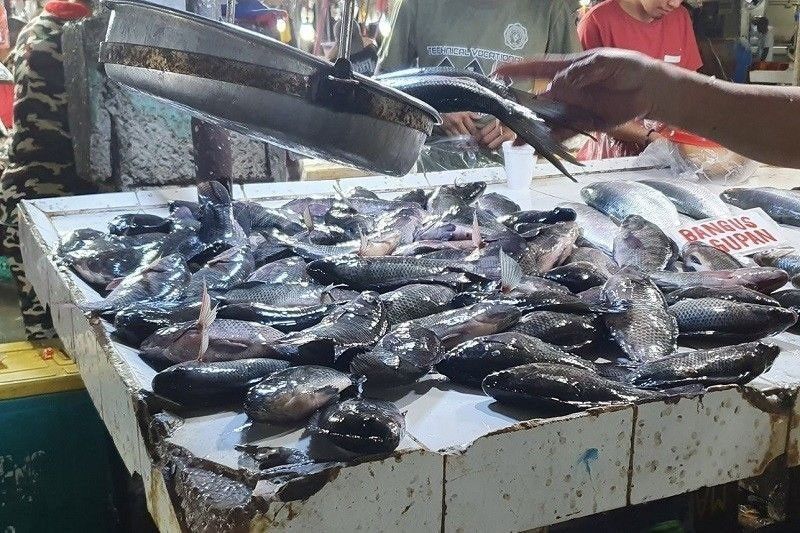Government urged to address feeds, fry issues

MANILA, Philippines — Fish farmers are urging the government to implement more measures to address feeds and fry issues that continue to affect aquaculture.
Fish farm groups said productivity of fish farms throughout the country continues to decline due to lack of quality feeds and sufficient fingerlings.
“Due to the low quality of feeds, Filipino favorites like bangus and tilapia that are grown in fish farms now need more feeds to grow to marketable sizes,” food security advocacy group Tugon Kabuhayan convenor Asis Perez said during a bi-monthly media briefing.
Fish farm industry leaders proposed that the government implement brood stock project as a way to lower the cost of fish farming in the country.
“We need a central hatchery to provide adequate fry to our growers. This way we can stop our dependence on Indonesia. We are not getting consistent fry quality from them. It can range from Class A to Class C fry, depending on the seller,” Philippine Association of Fish Producers Inc. chairman David Villaluz said.
“This is also where Indonesia got that idea because of SEAFDEC here. But they were able to implement ahead of us,” he said.
The industry is also still waiting for the full implementation of a memorandum circular issued recently by the Bureau of Animal Industry (BAI).
The memo provides for fully regulated importation of processed animal proteins (PAP) exclusively for the aquaculture industry to address the concern of non-availability of quality feeds.
This was supported by the National Fisheries and Aquatic Resources Management Council (NFARMC) and endorsed by the BFAR regional directors.
However, some groups—including Samahang Industriya ng Agrikultura (SINAG)—appealed the order as it could further expose the still vulnerable livestock industry from the spread of the African swine fever (ASF).
But these measures could help tame the fish farm groups’ feed conversion ratio (FCR), an indicator of production cost, which has gone up. FCR is the ratio of the kilo of feeds needed to produce a kilo of fish.
“Higher FCR means higher production cost,” said Perez, a former director of the Bureau of Fisheries and Aquatic Resources (BFAR).
Apart from quality feeds, fish farmers also face shortage of fry.
“Our problem is that we are having a shortage of fry. The fry being shipped from Indonesia is often low-quality,” Malalag Bay Fish Cage Operators and Fisherfolks Association president Joseph Anthony Lanzar said.
Meanwhile, Taal Lake Aquaculture Alliance Inc. (TLAAI) spokesperson Adrienne Nara said the FCR for his group, which is a major fish supplier to Metro Manila, has increased from the previous 1.8 to 2.0 to the current 2.2 to 2.4 and even 2.6.
Low water quality due to the Taal Volcano eruption has also affected them, he said.
Villaluz, who is based in Iloilo, said a kilo of bangus in Visayas farms used to consume 1.2 to 1.6 kilos of feeds to grow large enough to be harvested. Now they need 1.8 to 2 kilos of fish feeds.
“Higher FCR translates to a P10 per kilo increase in production cost. Add the P4 per kilo increase in feeds cost, the total increase in production cost is P14. Small fish farms may not be able to bear these additional costs,” he said.
Lanzar said this is due to low quality of feeds. “Almost half of fish pond operators in Mindanao are affected. Quality of feeds is not good. If you use low-quality feeds, the FCR goes up. Our FCR is now 2.4 to 2.6. It is higher than ever,” he said.
- Latest
- Trending





























